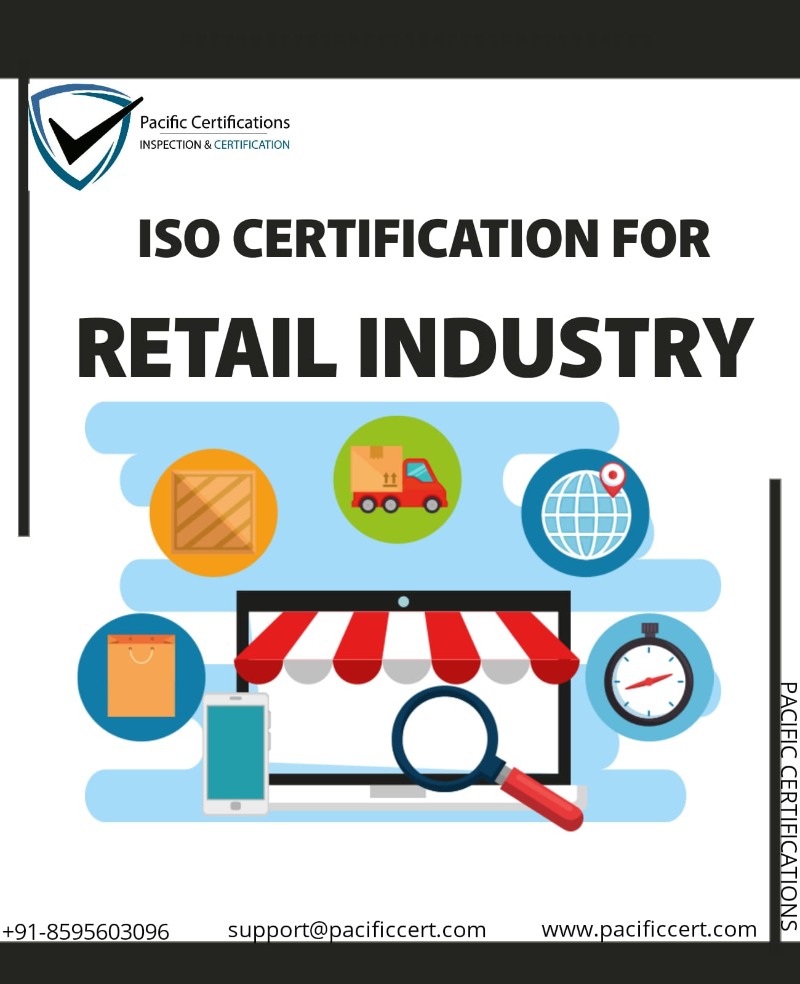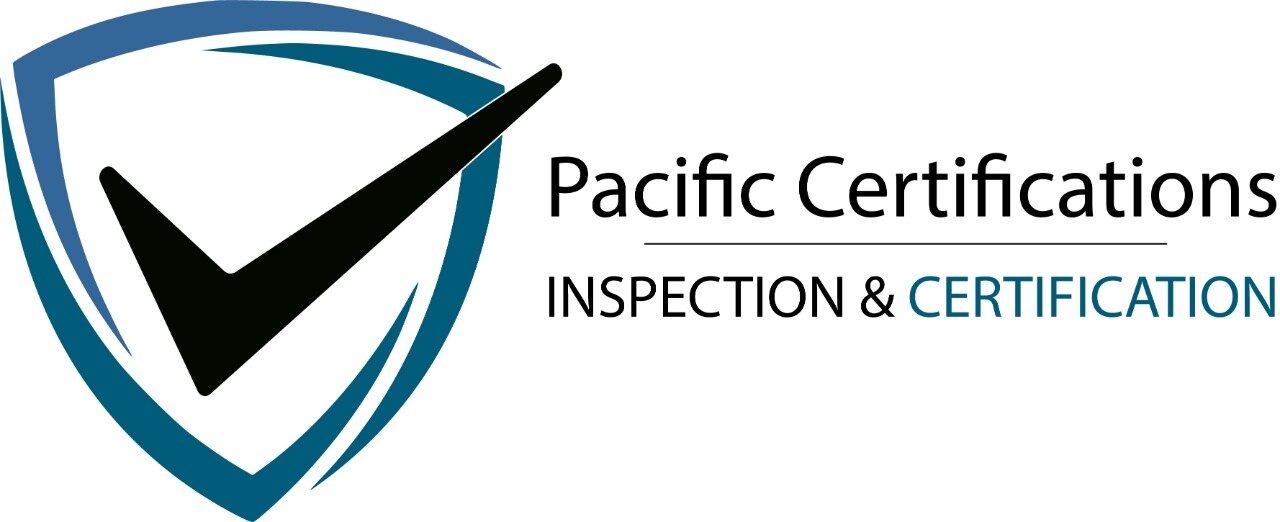ISO Certifications for Retail Industry Requirements and Benefits

Introduction
The retail industry operates in a highly competitive, customer-facing, and compliance-driven environment where service consistency, product quality, supply chain reliability, data protection, and operational efficiency directly influence customer trust and business performance. Retail businesses span supermarkets, fashion and apparel stores, electronics retailers, specialty shops, e-commerce retailers, franchise outlets, and multi-location retail chains serving diverse consumer markets.
With increasing customer expectations, omnichannel retail models, tighter consumer protection laws, growing cybersecurity risks, and rising pressure on margins, retailers must demonstrate structured governance and operational control. Stock inaccuracies, poor customer service, data breaches, supplier failures, or health and safety incidents can quickly result in reputational damage, regulatory penalties, and revenue loss. ISO certifications provide internationally recognized frameworks that help retail organizations standardize operations, manage risks, improve customer experience, and strengthen credibility with customers, suppliers, landlords, and regulators.
In the retail industry, trust is built on consistency, availability, and customer confidence.
Quick Summary
ISO certifications provide retail businesses with internationally recognized frameworks to manage service quality through ISO 9001, protect customer and transaction data through ISO/IEC 27001, ensure continuity of retail operations through ISO 22301, manage occupational health and safety in stores and warehouses through ISO 45001, support environmental responsibility through ISO 14001, strengthen structured risk governance through ISO 31000, and improve supply chain reliability through ISO 28000 where applicable. These standards support efficient retail operations, safer environments, and sustainable growth.
For guidance on selecting the most relevant ISO standards for your retail business, contact [email protected].
Applicable ISO Standards for Retail Industry
Below are the key Applicable ISO Standards for Retail Industry:
ISO 9001:2015 - Quality Management System (QMS)
ISO 9001 helps retailers standardize store operations, customer service processes, inventory management, merchandising, complaint handling, and performance monitoring. It ensures consistent service delivery across locations, improves customer satisfaction, and reduces operational errors.
ISO 14001:2015 - Environmental Management System (EMS)
ISO 14001 supports responsible management of environmental aspects such as packaging waste, energy consumption, refrigeration systems, logistics coordination, and supplier sustainability practices. It helps retailers meet environmental expectations increasingly valued by consumers and regulators.
ISO 45001:2018 - Occupational Health and Safety Management System (OHSMS)
Retail environments involve risks related to manual handling, shelving, storage, crowd management, slips and falls, and warehouse operations. ISO 45001 supports identification and control of workplace hazards, ensuring staff and customer safety while maintaining compliance with labor and safety regulations.
ISO 27001: Information Security Management Systems (ISMS)
Retailers handle sensitive information such as customer personal data, payment details, loyalty program records, supplier contracts, and sales analytics. ISO/IEC 27001 provides a structured framework to protect information assets, manage cybersecurity risks, and prevent data breaches across POS systems, e-commerce platforms, and back-office systems.
ISO 22301:2019 – Business Continuity Management Systems
Retail operations are vulnerable to disruptions such as system outages, supply chain delays, natural events, labor shortages, and public emergencies. ISO 22301 ensures that critical retail services such as sales, inventory replenishment, and customer support can continue or recover quickly during disruptions.
ISO 28000:2022 – Supply Chain Security Management Systems
ISO 28000 is particularly relevant for large retailers and distributors. It supports identification and control of supply chain risks such as theft, counterfeiting, cargo loss, and unauthorized access, improving reliability and traceability across retail supply networks.
Click here to find out more applicable standards to your industry
What are the Requirements of ISO Certifications for Retail Industry?
Retail businesses seeking ISO certification must establish documented management systems and demonstrate consistent implementation across stores, warehouses, and corporate functions:
ISO 9001:2015 – Quality Management Systems
Document store operations, customer service, and inventory processes
Define quality objectives aligned with customer satisfaction and sales performance
Control SOPs, records, and operational documentation
Monitor customer feedback, complaints, and service performance
Manage supplier and franchise performance where applicable
Conduct internal audits and management reviews
ISO/IEC 27001:2022 – Information Security
Identify and classify customer, payment, and business information assets
Conduct information security risk assessments
Implement access controls for POS, e-commerce, and ERP systems
Secure customer data, payment processing, and digital platforms
Establish incident detection and response procedures
Monitor and improve ISMS effectiveness
ISO 22301:2019 – Business Continuity
Identify critical retail operations and dependencies
Conduct business impact analysis (BIA)
Develop continuity and recovery plans
Plan for system outages, supply disruptions, and emergencies
Test and review continuity arrangements
ISO 45001:2018 – Occupational Health & Safety
Identify hazards in stores, warehouses, and logistics areas
Assess OH&S risks and implement control measures
Ensure compliance with safety and labor regulations
Provide staff training, PPE, and emergency preparedness
Monitor incidents and safety performance
ISO 14001:2015 – Environmental Management
Identify environmental aspects of retail operations
Control waste, packaging, and energy use
Manage transportation and logistics environmental impacts
Ensure compliance with environmental regulations
Monitor environmental performance and improvement actions
Tip:Map one complete retail cycle—from supplier sourcing and inventory receipt to in-store sales, customer service, returns, and after-sales support—against ISO requirements to identify process, risk, and compliance gaps early.
For assistance in evaluating your retail operations against ISO requirements, contact [email protected].
What are the Benefits of ISO Certifications for Retail Industry?
ISO certifications provide retail businesses with strong operational and commercial advantages, including:
Consistent customer experience across locations and channels
Improved protection of customer and payment data
Reduced operational errors and inventory discrepancies
Improved readiness for audits and regulatory inspections
Stronger supply chain reliability and transparency
Safer working environments for staff and customers
Enhanced brand credibility and customer trust
Increased eligibility for partnerships and franchise expansion
Better resilience to disruptions and market changes
Sustainable long-term growth
The global retail market continues to evolve rapidly with the growth of omnichannel retail, e-commerce integration, and data-driven customer engagement. Global retail sales are projected to exceed USD 35 trillion annually within a few years, driven by emerging markets, digital commerce, and evolving consumer behavior.
At the same time, retailers face increased regulatory oversight related to consumer protection, data privacy, product traceability, and workplace safety. Customers and partners increasingly expect transparency, security, and responsible business practices. Retail organizations demonstrating ISO-aligned governance are better positioned to manage complexity, build customer loyalty, and operate confidently across physical and digital channels. Looking forward, ISO certifications such as ISO 9001, ISO/IEC 27001, and ISO 22301 are expected to be standard benchmarks for professionally managed retail businesses.
How Pacific Certifications Can Help
Pacific Certifications, accredited by ABIS, acts as an independent certification body for retail businesses by conducting impartial audits against applicable ISO standards. Our role is to objectively assess whether documented management systems and retail operations conform to international ISO requirements, based strictly on verifiable evidence and records.
We support retail businesses through:
Independent certification audits conducted in accordance with ISO/IEC 17021
Objective assessment of retail processes, data security, and risk controls
Clear audit reporting reflecting conformity status and certification decisions
Internationally recognized ISO certification upon successful compliance
Surveillance and recertification audits to maintain certification validity
For ISO certification for retail industry businesses, contact [email protected]or call +91-8595603096.
Author: Ashish

Read more: ISO Certifications for Aerospace industry Requirements and Benefits
